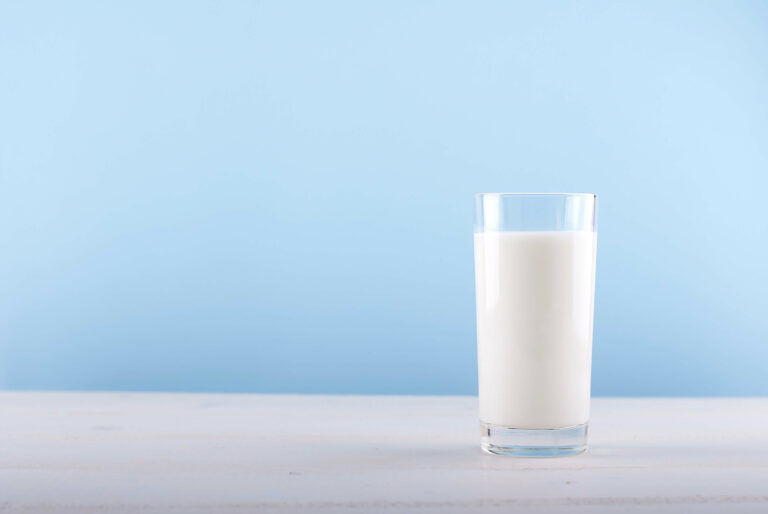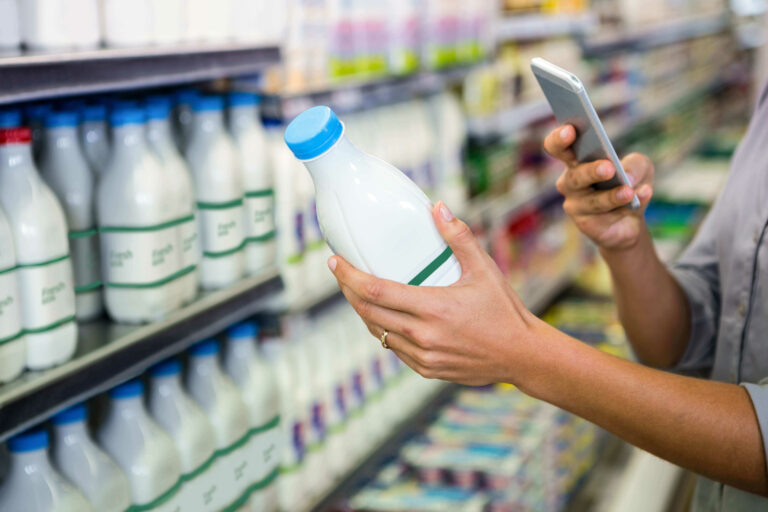Holistic Health Benefits of the Milk Matrix: Beyond Individual Nutrients For many years, nutrition research focused on how individual nutrients,..
GET THE FACTSMilk and Physical Activity
Whether your patients are occasional gym-goers or are training intensely for a triathlon or sport tournament, matching nutrition with exercise is a vital skill to discuss.
Sport nutrition includes ensuring the right amount of carbohydrates are available to replenish glycogen stores; sufficient protein is available to compensate for muscle breakdown; and enough fluids + electrolytes are on-hand to replace what is lost in sweat. Athletes rely on optimal nutrition to help fuel their sport and are always looking for an edge. Here’s a great tip to share with them: Milk is an excellent go-to recovery beverage for athletes because of its unique mix of nutrients, including fluid, protein, carbohydrates and electrolytes2. This fact sheet will help you learn more about how milk supports athletic endeavors, so you can share this knowledge with your patients. Milk naturally contains a mixture of high-quality protein (with all nine essential amino acids), carbohydrates, water and electrolytes. These are all nutrients that are required after sport3. Plus, milk is considered isotonic with an osmolality of 280–290 osmol/kg, meaning it contains similar concentrations of carbohydrate and sodium to match the body’s needs. All of these factors help milk fuel and rehydrate the body after exercise4. Milk has been extensively studied as a post-sport hydration beverage. Researchers have found that drinking milk after exercise can support both acute recovery and longer-term training adaptation5. Importantly, milk is also known to reduce post-exercise muscle soreness6, reduce muscle loss, and reduce symptoms of stress after sport, even more than carb-based sport recovery drinks7,8. Protein: Milk contains nine grams of high-quality protein per cup. Protein is vital after sport, since it helps the body repair the muscles that were used during exercise. Milk contains whey and casein proteins, which enhance post-exercise muscle protein synthesis rates9. Milk also has a high concentration of branched-chain amino acids such as leucine, which help support muscle protein synthesis and rehydration10,11. Carbohydrates: Milk contains carbohydrates in the form of lactose, which is a naturally occurring milk sugar that breaks down into glucose and galactose. Lactose can act as a fuel source before and during exercise. Lactose may also play a role in a post-exercise recovery by optimizing muscle and liver glycogen, which is the storage form of carbohydrates in the body13. Chocolate milk: which contains added sugars in addition to the natural occurring lactose sugar, may be more advantageous when additional carbohydrate is needed14. That may be the case for soccer or hockey tournaments, marathons, bike races, or other endurance sports with high sweat loss. Studies show that drinking chocolate milk right after exercise and again two hours after exercise helps with exercise recovery and lessens muscle damage15. Fluid and electrolytes: During exercise, it’s common for fluid and electrolytes to be lost through sweat, and these nutrients need to be replenished during and after activity. Milk is an excellent choice since it contains fluid and electrolytes, including sodium and potassium. These nutrients facilitate fluid recovery, rehydration, and electrolyte replenishment following exercise16. Electrolytes also help improve the recovery of skeletal muscle17. One study showed that gradually drinking milk restored fluid balance better than water or carbohydrate electrolyte drinks, due to how these beverages are digested. Milk is released more slowly from the stomach compared to water or sports drinks, and dairy proteins contribute to this beneficial effect18. The average athlete loses 1-3L sweat/hour, and both the fluid and the electrolytes need to be replenished. The main electrolyte minerals that are lost through sweat are sodium and chloride, but small amounts of potassium, magnesium, and calcium are also lost19,20. Here’s an overview of the nutrients found in sweat, and the nutrients found in milk: The American Journal of Clinical Nutrition published a study to establish a beverage hydration index on drinks that provide optimal hydration status22. Researchers looked at 13 different beverages including water, coffee, tea, soda and milk to assess urine output and fluid balance. They found that beverages with a small amount of fat, protein or sugar were better able to keep people hydrated for longer. Since milk contains fat, protein and sugar, it came out on top as being even more hydrating than water. That’s because the macronutrients in milk help delay gastric emptying and keep hydration happening over a longer period. Compared to traditional sports drinks, milk has similar amounts of carbohydrate and sodium, but more potassium and protein. The other advantage? Milk is a whole food, while sports drinks are considered ultra-processed and contain artificial colours and flavours. During activity, ingesting carbohydrates increases muscle glycogen stores, prevent muscle damage and help with training adaptations23. Milk can be sipped during exercise, similar to sports drinks.
After resistance training or intense exercise, recommend 20 grams of high-quality protein to provide anabolic stimulus for muscle protein synthesis24,25. The other benefit to milk is that it’s readily available, making it a convenient and easy option to facilitate post-exercise recovery26,27,28. Whether it’s a weekday hockey game, a weekend run or a week-long volleyball tournament, milk is an excellent beverage to promote glycogen storage, muscle synthesis and rehydration.Milk as a sport recovery drink
What’s the link between milk and exercise recovery?
Chart from: www.sportsrd.org/wp-content/uploads/2018/11/Whats-In-Your-Sweat.pdf
Mineral
mg/L
Nutrients in 1 cup 1% milk21
Sodium
460-1840
113 mg
Chloride
710-2840
N/A
Potassium
160-390
387 mg
Magnesium
0-36
28 mg
Calcium
0-120
322 mg
Milk vs. sporks drinks
*Based on an average of Gatorade Cool Blue and Powerade Mixed Berry
Nutrient (per cup)
Average commercial sports drink*
Milk
Carbohydrate
15 g
12 g
Sodium
135 mg
110 mg
Potassium
40 mg
387 mg
Protein
0 g
9 g
Practical advice for patients
CITATIONS
Resources
Milk and Mucus
Milk and Mucus The current body of research indicates that milk and other dairy foods do not increase mucus production...
GET THE FACTSMilk and Pediatric Nutrition
MILK AND PEDIATRIC NUTRITION Growing Strong: The Importance of Milk to Nourish Children Leading pediatric and health organizations recognize the..
GET THE FACTSMilk and Physical Activity
Milk and Physical Activity Whether your patients are occasional gym-goers or are training intensely for a triathlon or sport tournament,..
GET THE FACTSMilk and Lactose Intolerance
Milk and Lactose Intolerance Having lactose intolerance does not mean your patients need to give up dairy Highlights: Evidence shows..
GET THE FACTSMilk and Hypertension
MILK AND BLOOD PRESSURE Milk plays a role in disease prevention for many chronic conditions, including heart disease and hypertension...
GET THE FACTSDairy and Colorectal Cancer
DAIRY AND COLORECTAL CANCER Colorectal cancer is the second leading cause of cancer-related deaths in men and the third in..
GET THE FACTSHeart Health Benefits Of Milk
Heart Health Benefits Of Milk Diet and lifestyle play a role in heart disease prevention. It is estimated that 80%..
GET THE FACTSMilk and Plant Based Drinks
MILK AND PLANT BASED DRINKS There are many different plant-based beverages (PBB) available in the grocery store and it is..
GET THE FACTSDisease Prevention
Disease Prevention Milk plays a role in disease prevention for many chronic conditions, including heart disease, hypertension, type 2 diabetes..
GET THE FACTSMilk Nutrition Facts
Milk Nutritions Facts Milk is a source of essential nutrients. There is extensive evidence to show that including milk and..
GET THE FACTSRESOURCES
Download useful resources, research studies, and fact sheets on the benefits of dairy
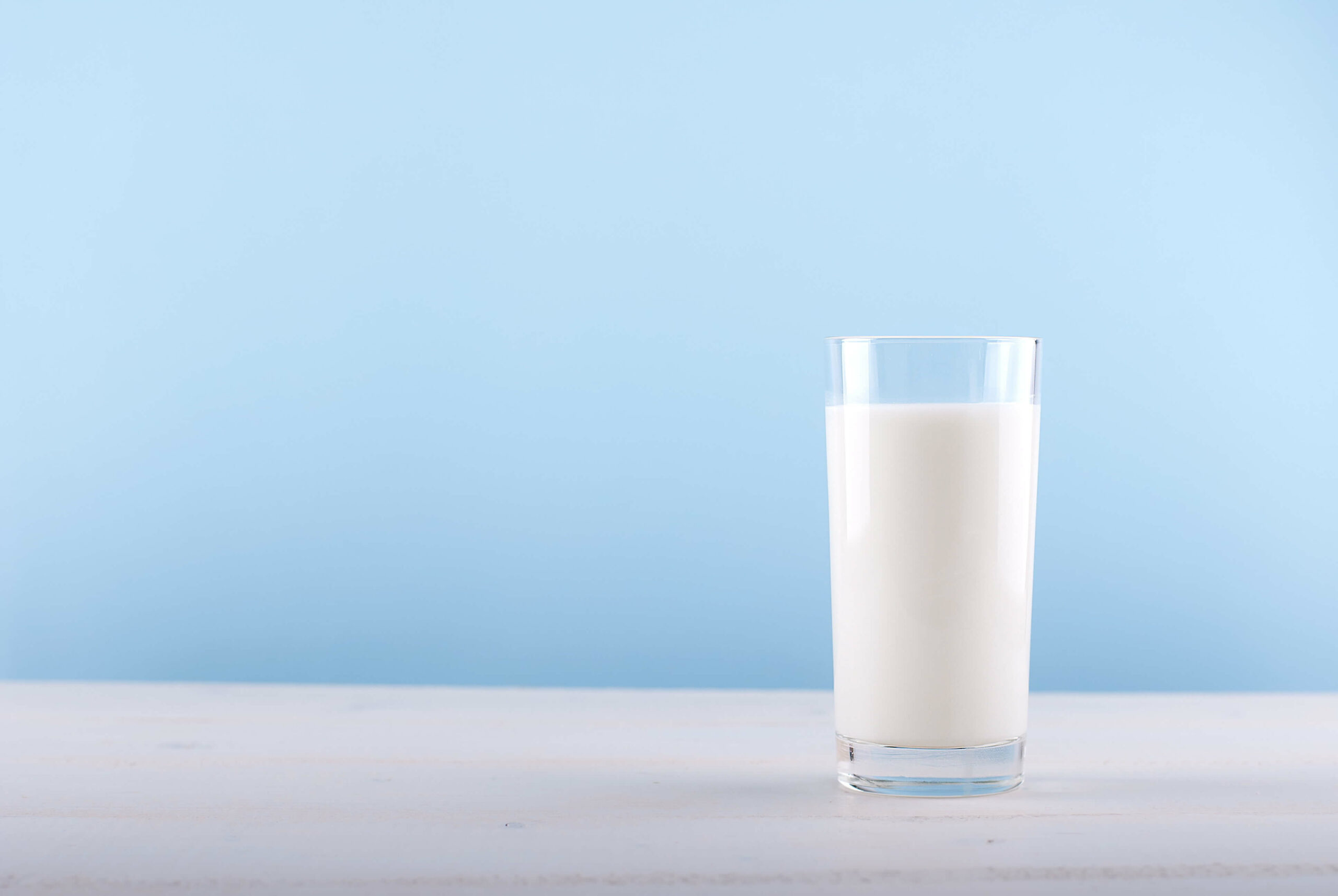
Nutrients in Dairy
As a source of complete protein and essential nutrients, drinking milk is a simple way to support optimal health.

Dairy and Disease Prevention
Naturally nutrient dense, milk helps to combat nutrition deficiencies and ward off heart disease, hypertension, and colorectal cancer.
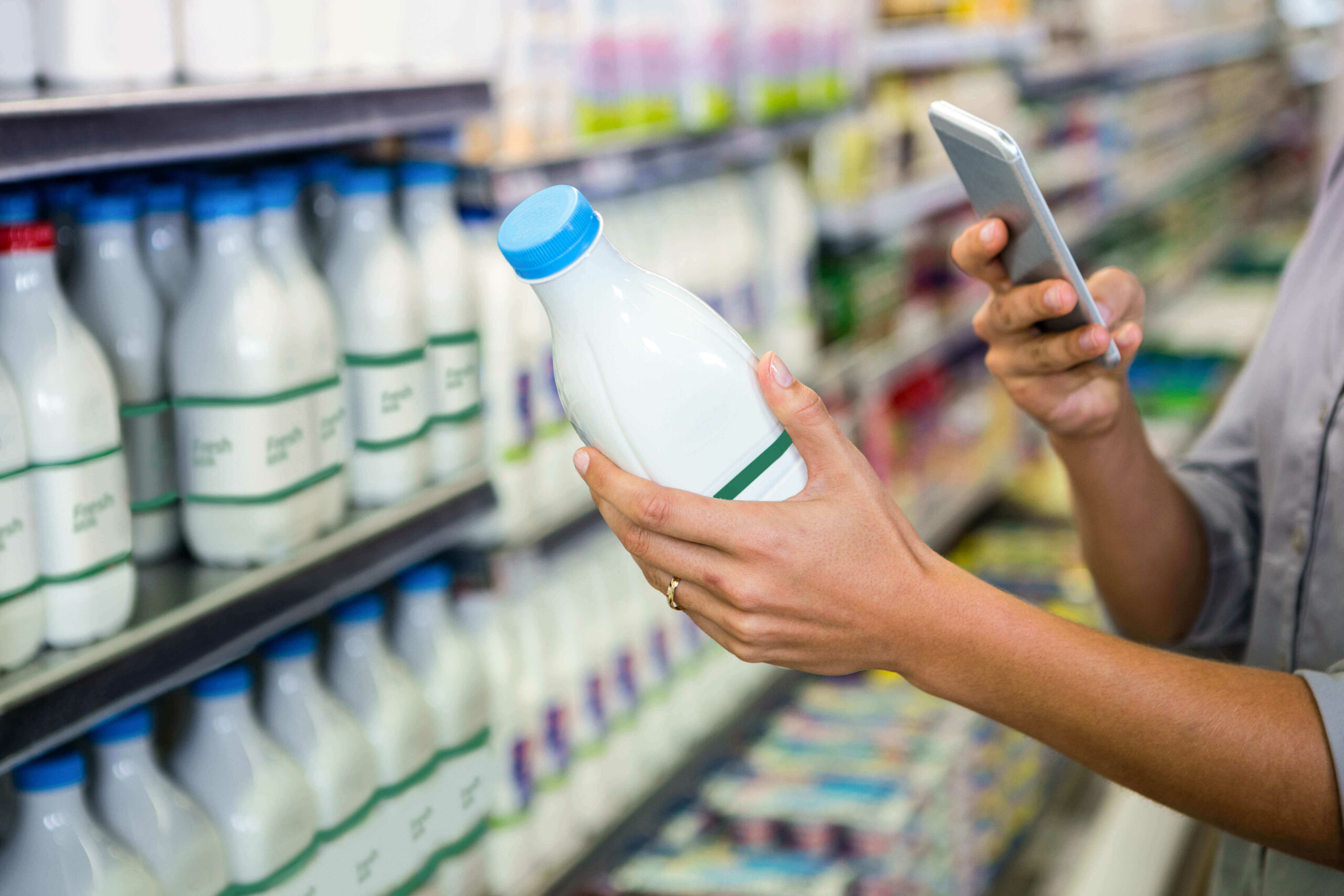
Dairy Milk and Plant Based Beverages
All forms of milk, including lactose-free milk, contain complete protein, vitamins, and minerals.

Heart Health Benefits of Milk
It is estimated that 80% of heart disease cases can be prevented with lifestyle changes that include a nutritious diet, regular exercise, and smoking cessation.

Dairy and Colorectal Cancer
Studies have shown that high consumption of total dairy products and total milk was associated with a lower risk of developing colorectal cancer.

Milk and Hypertension
Milk plays a role in disease prevention for many chronic conditions, including heart disease and hypertension. Learn how adding milk into your patients’ diets can help with blood pressure management.
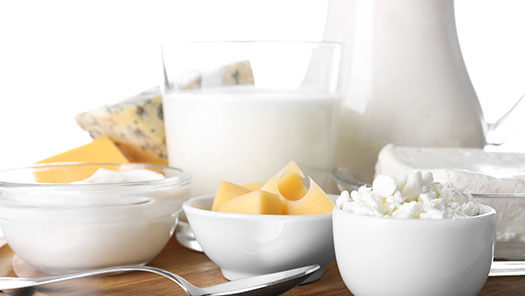
Milk and Lactose Intolerance
Some people have trouble digesting lactose, but that doesn’t mean giving up dairy! Read on to learn more about lactose intolerance, how it’s formally diagnosed, and how you can provide the best nutrition advice to patients.

Milk and Physical Activity
Milk has a unique combination of nutrients that make it the ideal beverage for post-exercise rehydration and protein synthesis.

Milk and Pediatric Nutrition
Leading pediatric and health organizations recognize the benefits of milk and dairy foods for early childhood. Just how much milk is recommended for children, and which nutrients will kids get from a tall glass of milk?

Milk and Mucus
When a runny nose or congestion appears, many people believe they need to cut out milk to reduce mucus. It turns out that this is a myth, and studies show that milk does not cause mucus.
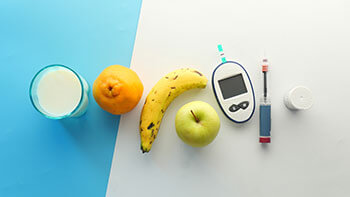
Diabetes Prevention and Milk
Take a closer look at the role of milk in the prevention of T2D. There are potential mechanisms through which milk and dairy foods may play a role in reducing the risk of developing type 2 diabetes

